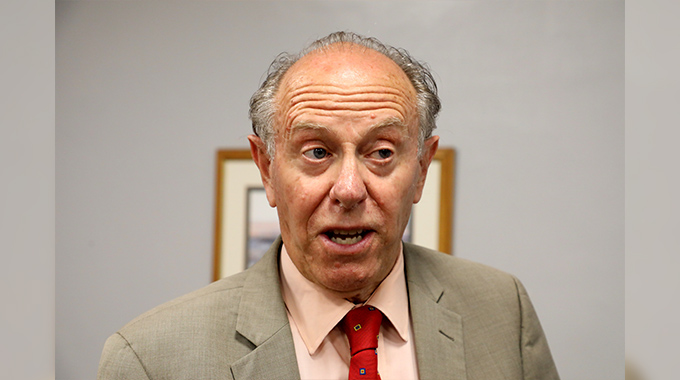Choosing a career path in computing fields


CATCH THEM YOUNG . . . Primary school children in a Computer Science class in this wire picture. A career in computing fields requires one to dedicate time, resource investment and research in an ICT field of their choice so that they acquire qualifications.
Prudence Kadebu
IT’S that time of the year when our O-and A-Level students are considering their long term career in life after receiving their results.
A career in computing fields requires one to dedicate time, resource investment and research in an ICT field of their choice so that they acquire qualifications, which normally will enable them to cultivate a skill, which can get them a job in that particular field. One person can have more than one career but usually the second one tends to become more of a hobby.
Choosing a career path is a mammoth task, which requires exposure to a lot of information.
Young people need to be assisted on how they can choose a career. The first thing is to determine where one’s passion lies from an early age.
In ICT, this could be a specialisation in hardware, programming, networking or web development among others. It would be best if a student discovers their strengths and weaknesses and then seek to develop the strengths further. In any case, a career path one will enjoy for life regardless of economic or industrial dynamics is the best.
However, this is only possible if the student chooses the right programme they can undertake towards a particular career path. As a student, you definitely cannot know everything unless you are exposed to it. It is therefore, advisable to consult experts in various fields first before you can choose a programme to do. But, this has to be done early.
Advice must be sought from universities and colleges around on their degree programmes’ entry requirements. In addition to that, attendance at career guidance events is of paramount importance as well as a study of the mapping of Degree Programmes to subjects (especially at A-Level) that can be pursued. Only then can you be sure of what career is best suited for you according to your strengths and passion.
It should be borne in mind though that there are many challenges that can be faced in choosing the right career when one is not well advised. If you do not take interest in shaping your career early, you will find that what you have already focused on is not adequate to allow you to be eligible for a specific degree programme or career path. Unfortunately, some high schools neither take part in activities that can expose pupils to industrial trends nor organise trips for them to attend career guidance workshops.
Secondary schools have a very crucial role to play in this regard. It is common that between form one and form four, pupils usually have subjects chosen for them depending on their Zimsec Grade Seven results when it comes to schools that initially slot students in classes categorised as sciences, arts, and commercials.
This model has its advantages and disadvantages. In this scenario, pupils are put in a class according to their perceived strengths, which can shape their career paths early.
However, some children start off a bit slow and pick up later when they get to secondary school. In this case, a child who is placed in a commercials or arts class may be best suited for sciences and the reverse is also true.
Pupils can be disadvantaged in this case. Some schools delay this process to the beginning of Form three, giving every pupil a chance to mature and reveal their true strengths and orientation.
It is difficult to tell where a child’s strengths are when they get “all ones” at Grade Seven.
The tendency is to put them in the sciences class. It is possible that their strengths may actually be in commercials, but only time can tell. This also happens when pupils are proceeding to A-Level. If they have “all A” grades at O-Level, they are usually considered for sciences without a second thought.
The assumption is such pupils are all-rounders, which is not always true. Sometimes they would be better suited for arts or commercials than sciences and they end up failing to score high points and qualifying for the programmes they would prefer for undergraduate studies.
Children should be mentored to help them achieve their career goals. They need to be taught to be goal-oriented all the way, to set targets that they can focus on and exert all energy in order to achieve. They should also be encouraged to engage in teamwork and not to work in isolation.
Platforms need to be availed for consulting with experts in various fields that may be interesting to them. Hard work and avoiding procrastination always yields success but nothing comes only by wishing without putting effort to it.
Parents must also take an active role in helping their children in shaping their career paths. Parents who spend time with their children tend to usually discover their children’s strengths early. They can then avail resources and expose their children to activities that can further enhance their strengths in various areas. In this case their part is in supporting and nurturing their skills rather than impose career paths on them. Passion must precede everything else because whether resources are available, as long as a child has no passion in that, all efforts will be in vain.
For children who enjoy exploring ICTs there are endless opportunities in Zimbabwe and across the whole world. Programme requirements in the computing fields differ from university to university and also from degree programme to degree programme.
I will give an example of undergraduate degree programmes offered in the School of Information Science and Technology at the Harare Institute of Technology, one of the most reputable state universities in Zimbabwe.
In the School of Information Science & Technology there are four BTech (Hons) Degree programmes currently on offer, that is, Computer Science, Software Engineering, Information Technology and Information Security & Assurance. The requirements for these programmes are generally at least 2 A-Levels including Maths, Physics or Computer Science or any other relevant Science subject or at least National Diploma (ND) — HEXCO in computer Science, Software Engineering, Information Technology, Information Security & Assurance respectively and a minimum of 2 years relevant work experience
Maths and Physics are two subjects that are mainly considered primarily for Computer Science and Software Engineering degree programmes because of electronics-related courses that are included in the curriculum. Maths and Computer Science are also considered especially for high pointers. Information Technology and Information Security & Assurance degree programmes also consider Maths and Physics or a related Science subject but are, however, not too strict on Physics as a requirement.
Maths and Computer Science are taken for all those meeting cut-off points for selection. The cut-off points also vary year after year depending on overall pass rate for A-Level.
Career prospects in the computing programmes include but are not limited to database administrators, computer programmers, software developers/ engineers, web developers/designers, graphics designers, network administrators/engineers, systems administrators, security engineers, information systems auditors, information security managers, IT managers, ICT technicians, systems support analysts and data analysts.
Those who wish to pursue postgraduate studies in the computing field can also consider Masters degrees offered across the world in the following: computer science, computer science and engineering, software engineering, software technology, information technology, cyber security and computer forensics, cloud computing, multimedia technology, information systems, machine learning and data science.
My advice for students wishing to pursue programmes in the computing fields is that they must start thinking outside the box. Coding (programming) is not really about intelligence but it is all about passion. Once you develop an interest in it, it becomes a part of you, more like an art.
Try and read about success stories of prominent people in the field like Bill Gates, Steve Jobs, Mark Zuckerberg and others but do not be fooled by stories of some of these prominent people being dropouts from universities. They probably had been home- schooled from infancy, mentored by the best and were far ahead of their peers and discovered that they were not benefiting much from attending classes. Some were rich enough by then to start their own businesses. Not every entrepreneur started off from a disadvantaged background. There is no need toalways compare yourself with everyone else in your chosen field. Just get inspired, make your choice right, work hard and get yourself skilled. If you do that, you are ready for an exciting career path.
In conclusion, I encourage students to not waste time but to start researching on programmes and career paths early. Find a mentor who is knowledgeable to offer assistance.
Visit tertiary institutions and seek advice and career guidance. If you cannot go in person, use the internet or telephone. The earlier you are equipped with the information to choose the right career path the better for you. Explore research and enjoy everything you do. Your success story begins with you.
Prudence Kadebu is the chairperson for Software Engineering Department at Harare Institute of Technology and a professional member of ZICT. She may be contacted on [email protected] or +2634741422-36












Comments